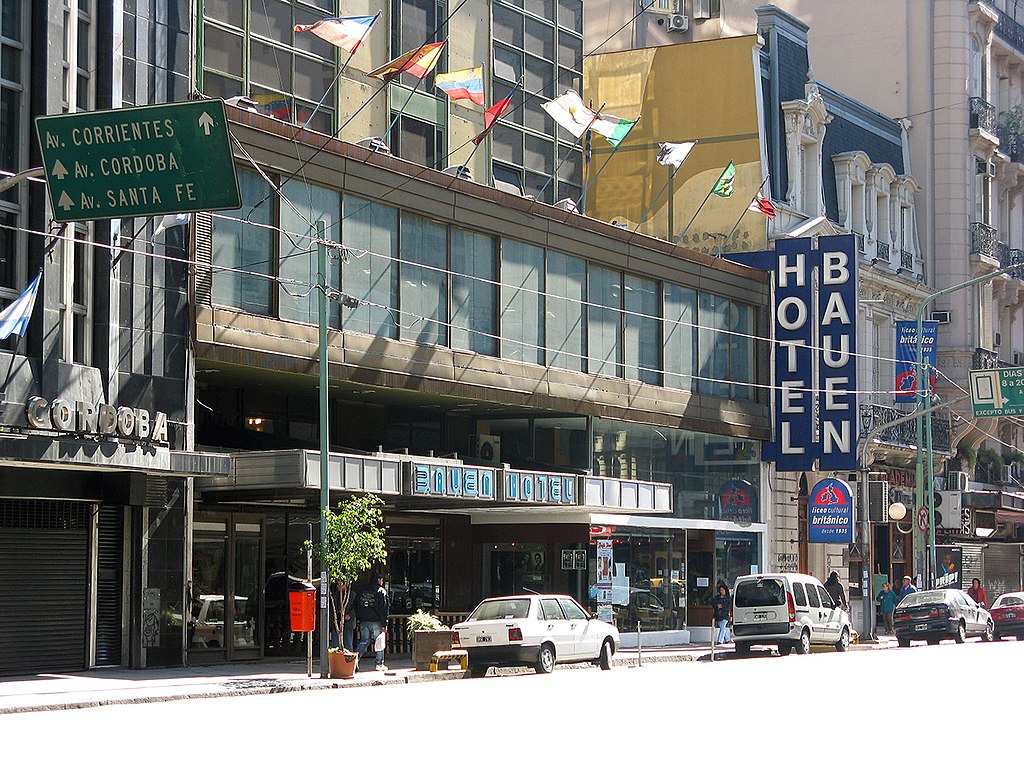solidarityincrisis - restart.utopia.sk
Solidarity in the crisis times or why capitalism does not matter
Peter VittekIn recent decades, the economic imagination has been colonized by the hegemony of neoliberal capitalism, which gives the impression of being ubiquitous, omnipotent, indestructible, and of no alternative. However, experience shows us that this is by no means the case. All over the world, we may encounter a number of very diverse initiatives or enterprises that are organized and managed in a different way than ordinary capitalist firms and have different goals than the accumulation of capital. Instead of hierarchies and authoritarian governance, they create a space for cooperation and solidarity, instead of making profits, they try to create a society in which everyone lives a good life. A closer look reveals that these "real utopias" are in society constantly present. They become most visible in crisis situations, where commodified relationships are useless and people spontaneously rely mainly on their own activity and mutual help. At the same time, crises and responses to them clearly show us that no institutions or relationships are eternal, and that widespread societal change can occur very quickly.
In 2001, Argentina declared bankruptcy after a protracted economic crisis. Many businesses were in danger of bankruptcy, and people began to fear that they would lose their livelihoods. One of the answers to the crisis was the mass occupation of workplaces by employees. The occupied businesses either found themselves in the hands of creditors or were owned by companies that went bankrupt or were about to fail. In its peak phase, the movement expanded to about 200 companies and about 10,000 people joined the occupation. People occupied various companies: from textile and metallurgical plants to schools, supermarkets and hotels. The aim of the movement was to maintain operation and employment even in a situation in which the owners we no longer interested to continue their further operation. The occupied companies also adopted a new culture of governance. The people who worked in them also controlled them, the capitalist hierarchies disappeared, and with them the owners and bosses. Many of them were therefore managed as cooperatives.
The four-star Hotel Bauen in Buenos Aires opened in 1978, before the football World Cup. At the end of 2001, the owner closed the hotel due to poor management, growing competition and the crisis. Over time, the staff decided to occupy the hotel and continue working. The hotel reopened in March 2003. They received assistance from the National Movement of Occupied Enterprises, the grassroots movement of laid-off workers and former employees who developed strategies to gain control of the occupied production facilities. Soon the hotel team employed 150 people and operated 200 rooms and a cafe. They were also helped by people from the neighborhood or another occupied company - the FaSinPat ceramics factory.
FaSinPat is an abbreviation for the Spanish term Fábrica Sin Patrones, a factory without bosses. Originally, this pottery factory was named after its founder Luis Zanon, whose success was largely ensured by his good relations with governments. In the early 1980s, the military junta provided him with a loan to build a factory on public land. In the 1990s, it maintained production thanks to support from national and local governments. He never repaid the loans. After the year 2000, the demands of the workers to improve the situation in the workplace began to escalate, and the factor was facing bankruptcy. Zanon began to lay off workers and eventually closed the factory. Employees occupied the factory to prevent the sale of the property. They wanted to save their jobs at all costs. They spent 8 months in front of the factory. They managed it with the help of local people, who organized food collections for them. Schools, neighbors, or even the local prison helped. In the end, they decided to resume production themselves. When taking over the factory, they also argued that it was built and operated from public funds and that the owner owed them a large amount of money. The number of people employed gradually increased from 240 to more than 450. The factory began to operate as a cooperative. The highest body is the general assembly, which elects the director of the cooperative and production coordinators. The General Assembly may call them off at any time. Over time, the cooperative began to support people in the area and repaid its debt: it supplied tiles to community centers and hospitals and allowed locals to organize cultural events on its premises. In 2005, the members of the cooperative voted at the annual assembly to build a health center in the slums of Nueva España. The local government promised for two decades to build the center, but in the end it always abandoned the plans. FaSinPat did not receive any support from it either. The previous owner paid for gas and electricity only 20% of the price, after the takeover, the cooperative had to start paying full prices. Nevertheless, it did not take long for the cooperative to prosper. The former owner wanted to get the factory back, but after several lawsuits and conflicts, the factory remains the property of the cooperative and the local people have kept their jobs and acquired a tool that contributes intensively to the development of the local community.
After 2008, when the global economic crisis broke out, many people around the world lost their jobs or incomes. One of the most severely affected countries was Greece. The employees of the Thessaloniki plant Vio.Me were without pay for two years when they decided to occupy and run the factory without bosses. They themselves say that when considering the takeover of the Vio.Me they initially drew inspiration from the domestic Greek tradition. During the Ottoman rule, cooperatives had the opportunity to create free zones. They paid the empire a little more, but then it did not interfere with their activities. Only later did they learn about the Argentine movement. When they discovered texts from Zanon employees, they had chills and at the same time felt as if someone was “spying“ on them. They found that people in similar life situations can come to similar ideas and even do the same thing. Just like the Argentinians, they also manage the factory democratically and without unnecessary hierarchies.
In 2014, huge waves of refugees began to appear at the borders of the European Union. Many came from the Middle East, driven out by war and religious fundamentalists. The refugee crisis has fully shown that the European Union is unable to live up to the values on which it is based – at least according to the statements and declarations of its representatives, or to the international commitments it has made. The Union's water border – the Mediterranean Sea – has become the most critical area. Desperate people tried to get to Europe at all costs in the fight for their lives. There were increasing reports of sinking ships and hundreds of drowned people. Neither the EU nor its Member States have done anything to create safe corridors for refugees displaced by the war, nor have they attempted to do anything to rescue drowning people. A group of volunteers, unwilling to come to terms with this policy, bought a boat and began saving the drowning people themselves. Out of this activity the Sea Watch organisation gradually grew, saving tens of thousands of people from death. And although the Sea Watch is an organisation staffed exclusively with volunteers and funded by donations and voluntary contributions, some European governments have tried to criminalise it. Well-known is the case of the captain of the Sea Watch 3, Carola Rackete, who in 2019 landed with a ship full of refugees in the Italian port of Lampedusa. According to the European Union and NGOs, it was the nearest safe harbor. The Italian police arrested her on trumped-up charges and threatened with long prison terms. However, after public pressure, she was released in the end.
In Europe, refugees often live in very undignified conditions and have been the subject of disgusting political games. Even directly on the EU soil, the often receive help mostly from volunteers rather the EU Member States. In Athens, squatters provided accommodation for many of them, helping them to occupy more buildings and enabling them to live in more dignified conditions than in refugee camps. They also became the target of repression by the Greek state and the police evicted some buildings. This happened despite the fact that the situation in the refugee camps is horrifying. Especially infamous has become the overcrowded Moria camp, a former military base originally intended for 3,000 refugees, in which 20,000 people were crammed into shacks and cardboard dwellings. When the Covid-19 pandemic hit Europe in 2020, those people were in mortal danger. Vio.Me employees then decided to donate their soap to the camp so that they would at least partially contribute to their safety.
Following the emergence of the Covid-19 pandemic in Slovakia in March 2020, the government took measures to slow its spread. As a result, part of the population found themselves literary overnight without the necessary services and basic disinfectants when the state authorities were not even able to ensure general availability of face masks without which it was not possible go outside. Immediately after the measures were introduced, a huge wave of solidarity arose. People started making diy faces masks, neighbors helped each other with grocery shopping especially for the less mobile or the elderly, donated disinfectants and basic foods to the homeless or helped overwhelmed medical staff. Women from the Union of Roma Mother Centers in Poltár also took part in these volunteer activities. Like thousands of other people, they began sewing face masks and distributed them in their communities and the whole town.
Dozens of similar situations occur repeatedly and we could write about them constantly. They emerge not only during n crises or various disasters. Manifestations of solidarity are a common part of our daily lives. And even though the public debate ad nauseam repeats the need to increase competitiveness or to support gigantic hierarchical organisations whose investments must be attracted at all costs, the ubiquitous and viable thread of solidarity tells us that we do not need hierarchies and that it is possible to achieve a good and dignified life for all if mutual aid and cooperation becomes the general norm.

Photo by Diego Torres Silvestre from Sao Paulo, Brazil, CC BY 2.0, via Wikimedia Commons
